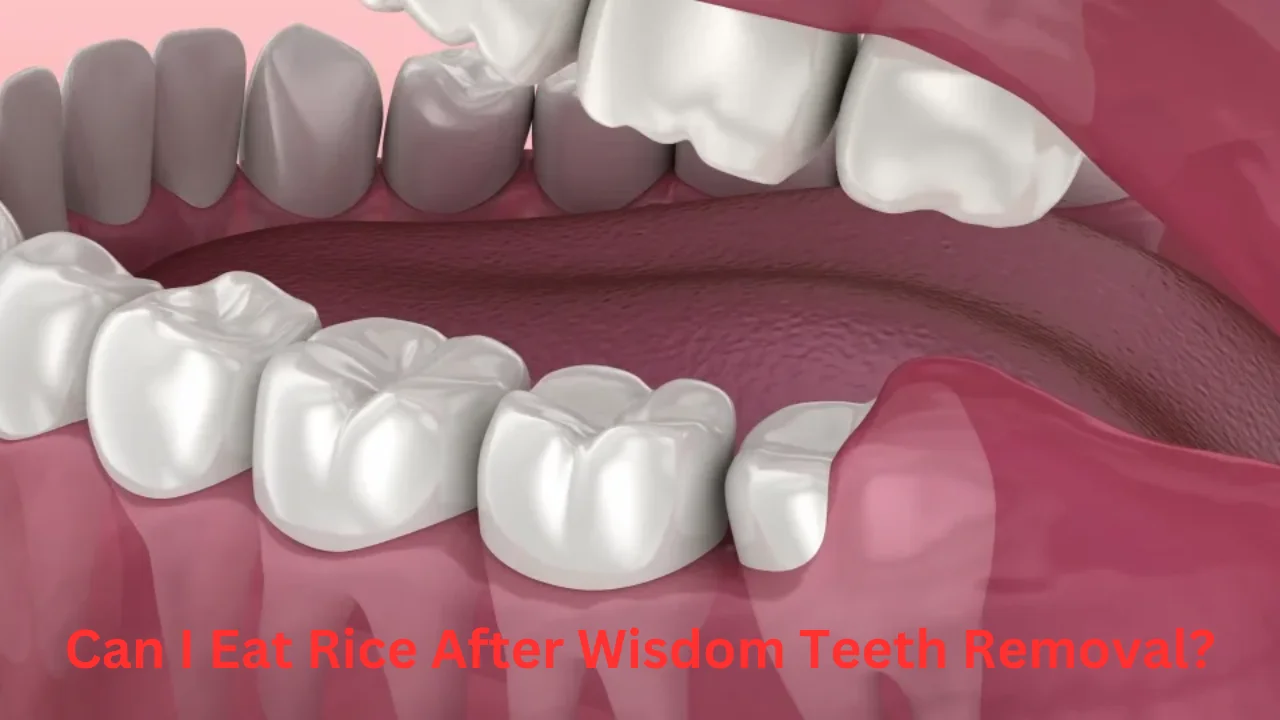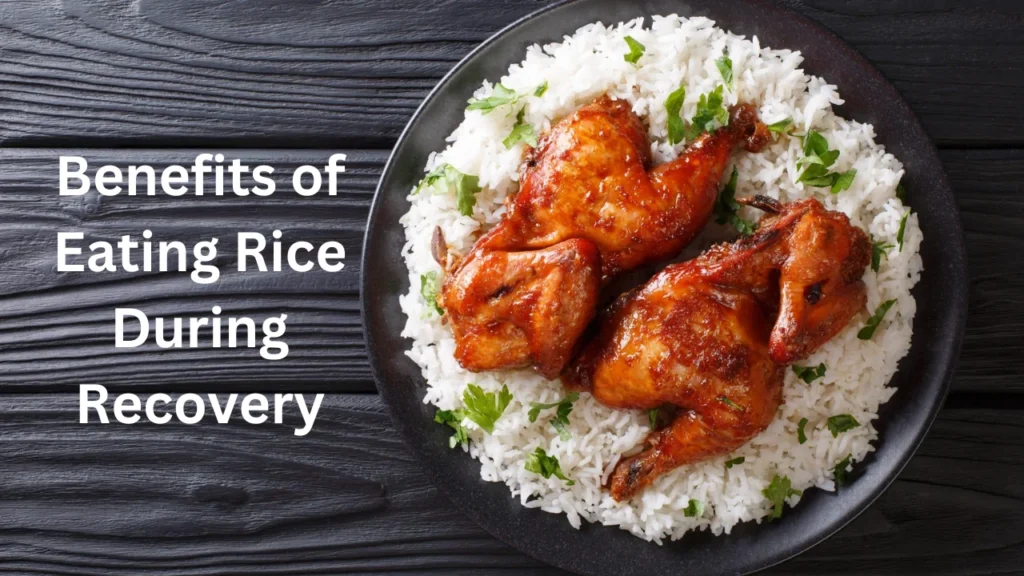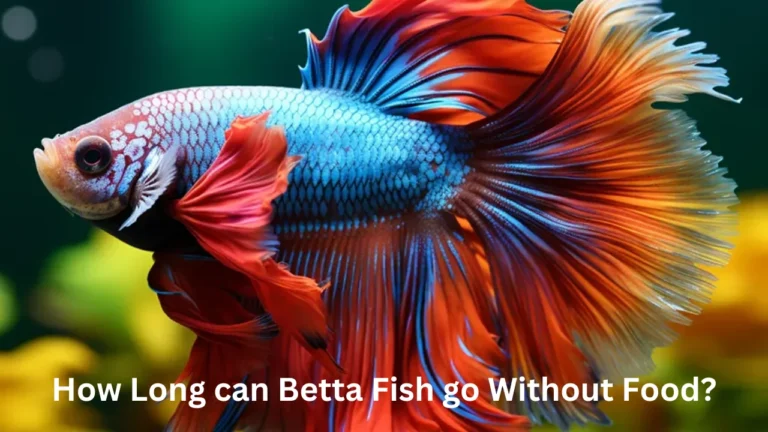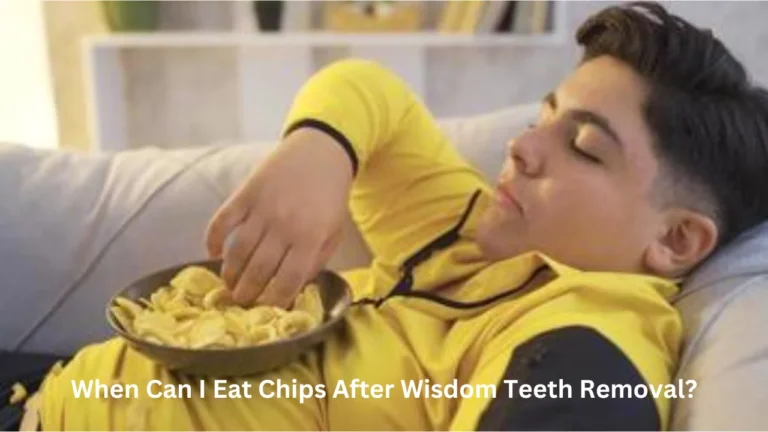Can I Eat Rice After Wisdom Teeth Removal?

The question, “Can I eat rice after wisdom teeth removal?” is one of the most common concerns for patients recovering from this routine dental surgery. Wisdom teeth extraction often requires significant aftercare, especially regarding diet, to promote healing and avoid complications. Rice, being a staple in many diets worldwide, is often missed by those recovering. In this article, we’ll explore when and how you can safely reintroduce rice into your diet after wisdom teeth removal, while following dentist-recommended guidelines.
Understanding the Recovery Process After Wisdom Teeth Removal
After wisdom teeth removal, your mouth enters a healing phase that requires special attention to prevent complications. The first 24 to 48 hours post-surgery are critical for the formation of a blood clot at the extraction site. This clot acts as a protective barrier over the exposed bone and nerves, preventing painful conditions like dry socket. During this time, it’s essential to avoid any foods that could disrupt the healing process, prompting many to ask, “Can I eat rice after wisdom teeth removal?”
As tempting as it may be, introducing rice too soon can lead to particles getting lodged in the surgical site, delaying recovery or causing infections. If you’re wondering, “Can I eat rice after wisdom teeth removal?” the answer depends on the stage of recovery and the rice’s preparation.
Read Also: Lorice Washington Net Worth, Early Life, Education and career
When Can I Eat Rice After Wisdom Teeth Removal?
The timeline for safely eating rice after wisdom teeth removal largely depends on your individual healing progress and your dentist’s advice. For most people, “Can I eat rice after wisdom teeth removal?” becomes a valid question about one week post-surgery, though this must be approached with caution. During the initial days, the focus should remain on foods that do not require chewing, such as broths, smoothies, and mashed potatoes. As healing progresses, you can gradually include softer foods like well-cooked rice to ensure proper nutrition without risking complications.
General timeline for incorporating rice into your diet after surgery
| Recovery Period | Dietary Recommendation |
|---|---|
| First 24-48 Hours | Stick to liquids and very soft foods; avoid rice. |
| 3-5 Days Post-Surgery | Introduce mushy, overcooked rice if healing is smooth. |
| 1 Week Post-Surgery | Soft, tender rice is generally safe to eat. |
| 2 Weeks and Beyond | Resume normal rice preparation if fully healed. |
Can I eat rice after wisdom teeth removal in the first few days? The answer is no. Small grains of rice can easily dislodge the blood clot and irritate the surgical site, leading to complications. Patience is essential during this early stage of recovery.

Benefits of Eating Rice During Recovery
Rice is a popular choice for post-surgery recovery because it is soft, easy to digest, and can be customized with mild flavors. For those wondering, “Can I eat rice after wisdom teeth removal?”, the answer lies in preparation and timing. Soft rice, cooked to a tender consistency, is gentle on healing tissues and provides essential energy in the form of carbohydrates. Adding rice to your diet in the later stages of recovery can help you transition back to regular foods while maintaining proper nutrition.
For example, cooking rice in chicken broth or vegetable stock can enhance its flavor while adding moisture, making it easier to swallow. Additionally, rice porridge or mashed rice are great options to avoid chewing while still enjoying this versatile grain.
Risks of Eating Rice Too Soon
Although rice has benefits, eating it too early after surgery can pose risks. For those asking, “Can I eat rice after wisdom teeth removal?”, it’s important to proceed cautiously. Small grains can become lodged in the extraction sites, potentially dislodging the protective blood clot. This can lead to dry socket, a painful condition that exposes the underlying bone and nerves. Additionally, trapped rice particles can increase the risk of infection, causing swelling and discomfort that may require further treatment. Proper timing and preparation are essential to avoid these complications.
Even after the initial healing phase, it’s essential to monitor how your body reacts to rice. For those asking, “Can I eat rice after wisdom teeth removal?”, the answer depends on your comfort and healing progress. If chewing causes pain or discomfort, it’s best to delay reintroducing rice into your diet until you’re fully healed.
Tips for Safely Eating Rice After Wisdom Teeth Removal
When reintroducing rice into your diet, preparation is key. If you’re wondering, “Can I eat rice after wisdom teeth removal?”, it’s all about ensuring the rice is soft and safe to consume. Cook rice to a very soft, almost mushy texture to make it easier to eat without chewing, minimizing the risk of irritation. Avoid sticky varieties like sushi rice, as they can be harder to clean from the extraction site. Soft types like jasmine or basmati rice are better options, as they tend to separate easily and are less likely to clump together, reducing the chance of particles getting trapped in healing areas.
If you’re unsure how your mouth will handle rice, start with small portions and observe your comfort level. For those asking, “Can I eat rice after wisdom teeth removal?”, beginning with small servings ensures you can assess your tolerance without overexerting your healing mouth. Pair rice with soft sides like steamed vegetables or mashed proteins to create a balanced meal that’s gentle on your gums.
Oral Hygiene During Recovery
Maintaining oral hygiene after wisdom teeth removal is crucial to avoid complications. For those wondering, “Can I eat rice after wisdom teeth removal?”, proper oral care plays a vital role in ensuring a smooth recovery while incorporating foods back into your diet. Vigorous rinsing should be avoided during the first few days to protect the blood clot. However, gently rinsing with a saltwater solution can help keep the surgical site clean. Brush your teeth carefully, avoiding the extraction area, and use a soft-bristled toothbrush to minimize irritation and promote healing.
If you feel rice or other food particles stuck in your mouth, do not attempt to dislodge them forcefully. Instead, rinse gently or consult your dentist for professional advice.
Read Also: Chantal Nchako: Cameroonian Actress and Director
Diet plan for wisdom teeth removal recovery
| Recovery Phase | Foods to Include | Foods to Avoid | Tips for Eating |
|---|---|---|---|
| First 24-48 Hours | Broths, smoothies, yogurt, applesauce, ice cream | Rice, hard foods, spicy foods, crunchy snacks | Stick to liquids or very soft foods. Avoid using straws to prevent dislodging the blood clot. |
| 3-5 Days Post-Surgery | Mashed potatoes, oatmeal, scrambled eggs, mushy rice | Sticky rice, raw vegetables, nuts, seeds | Ensure food is soft and easy to swallow. Rinse gently after eating to remove trapped food particles. |
| 1 Week Post-Surgery | Well-cooked rice, soft pasta, cooked vegetables | Chips, chewy meats, acidic or spicy foods | Gradually reintroduce soft solids. Avoid sticky or small-grain foods that may get lodged in the socket. |
| 2 Weeks and Beyond | Normal rice, tender meat, soft bread, steamed vegetables | Hard or crunchy foods if pain persists | Return to a regular diet if fully healed, but chew carefully to avoid irritation. |
Conclusion
So, can I eat rice after wisdom teeth removal? The answer depends on the stage of your recovery and how the rice is prepared. While rice is a nutritious and versatile food, it should be introduced cautiously to avoid disrupting the healing process. In the first week, prioritize softer foods and consider rice only when it is well-cooked to a mushy consistency. Gradually transition to normal rice preparations as your mouth heals fully.
By following these guidelines and listening to your dentist’s advice, you can safely address the question, “Can I eat rice after wisdom teeth removal?”, and enjoy rice as part of your recovery diet. Patience and proper care are essential to ensure a smooth and pain-free healing process. Always prioritize your oral health and consult your dentist if you have concerns about reintroducing rice or any other food into your diet. With the right approach and attention to your healing progress, you’ll soon be back to enjoying your favorite meals, including rice, without compromising your recovery.






